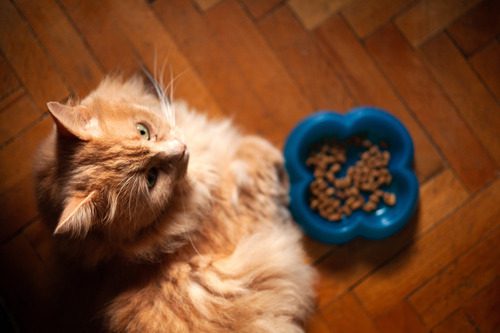Decreased Appetite in Cats: What You Should Know
When your cat turns away from their food, it can be more than just a picky eating phase—it might be a sign of a more significant health issue. A decreased appetite in cats can be caused by various factors, ranging from minor conditions to serious illnesses. Understanding the potential reasons and recognizing when it’s time to seek veterinary care can help ensure your cat remains healthy and happy. This blog explores the common causes of decreased appetite in cats, what you can observe at home, and when to contact your vet at Lagniappe Animal Health in Ruston, LA.

Recognizing Decreased Appetite in Cats
A decreased appetite in cats might be harder to spot than outright refusal to eat. Some cats may show less interest in their food, eat smaller amounts than usual, or skip meals occasionally. It’s important to monitor how much your cat usually eats and note any changes in their eating habits. This is the first step in identifying potential health concerns that require attention.
Monitoring Eating Habits
Keeping track of your cat’s daily intake is crucial. Note the amount of food you provide and how much remains at the end of the day. Changes in how your cat eats—like eating more slowly or chewing cautiously—can also indicate issues such as dental pain or gastrointestinal discomfort.
Common Causes of Decreased Appetite
- Dental Problems: Dental issues, such as gingivitis or tooth abscesses, can make eating painful for cats, leading to decreased appetite. Regular dental check-ups are essential for maintaining your cat’s oral health and can prevent many eating issues.
- Stress and Environment Changes: Cats are sensitive to changes in their environment. Stressful situations like moving to a new home, changes in the household, or the introduction of new pets can lead to decreased appetite. Creating a stable, stress-free environment can help mitigate these effects.
- Underlying Health Issues: Several medical conditions can cause decreased appetite in cats, including kidney disease, infections, or cancer. These conditions require prompt veterinary care to address both the underlying issue and the symptom of decreased appetite.
Importance of Timely Veterinary Care
If your cat’s decreased appetite lasts more than a day or two, it’s important to contact Lagniappe Animal Health at (318) 255-3303. Delaying veterinary care can complicate your cat’s condition and lead to more serious health problems. Your veterinarian will perform a thorough examination, possibly including blood tests, X-rays, or ultrasound, to diagnose the cause of your cat’s decreased appetite. The sooner an accurate diagnosis is made, the quicker your cat can begin the path to recovery.
Preventive Measures and Regular Check-Ups
The Role of Regular Veterinary Visits
Regular check-ups help catch potential health issues before they become serious. During these visits, your vet can monitor your cat’s weight, dental health, and overall condition, offering advice tailored to your cat’s specific needs.
Creating a Healthy Environment at Home
A calm and enriching environment can significantly impact your cat’s health. Include areas for play, hiding, and resting, and maintain a routine that minimizes stress and promotes wellbeing.
Ensuring the Long-Term Health of Your Cat
A decrease in appetite in cats can be a sign of various health issues, some of which may require urgent care. By understanding what signs to look for and when to seek veterinary help, you can play a crucial role in maintaining your cat’s health. If you notice persistent changes in your cat’s eating habits, don’t hesitate to call Lagniappe Animal Health at (318) 255-3303. Early intervention is key to addressing potential health issues effectively and can help your cat lead a happy, healthy life.

